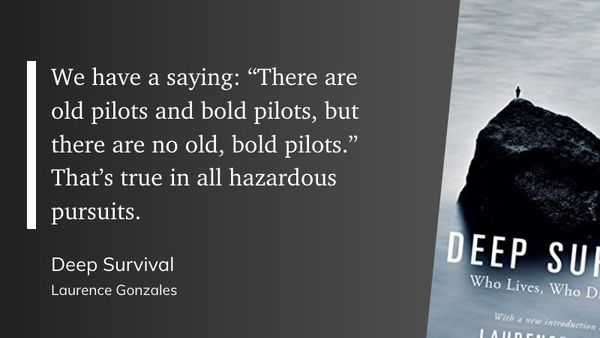This is the 67th edition of Cultivating Resilience, a weekly newsletter how we build, adapt, and lead in times of change—brought to you by Jason Shen, a 1st gen immigrant, retired gymnast, and 3x startup founder turned Facebook PM.
Had a pretty refreshing week off: only checked my work messages once—not bad! It was a good mix of catching up with old friends and meeting some new people as well as moving some personal projects forward. I’m sure I’ll have a lot to pick up on Monday but was glad I took the whole week. I saw a few people working at the wedding I was at and that was just painful 🙈.
—Jason
PS - I made 2 changes to this newsletter based on a thread. Can you tell what I changed?
🧠 Insights From "Deep Survival"
In Deep Survival: Who Lives, Who Dies, and Why journalist Laurence Gonzales combines his own personal adventure history with time spent with white water rafting experts, mountaineers, fighter jet pilots, and wilderness survival guides to understand how people survive (or fail to survive) in extreme wilderness situations like plane crashes, avalanches, and getting lost in the woods.
This is of course relevant to resilience in that the people who survive extreme wilderness events are by definition the ones who can adapt in the face of change and hardship. The book definitely isn’t for everyone—some readers find the author’s personal stories of skillful (and sometimes stupid) acts of survival grating, but overall I think it’s held up over time.
1. Survivors admit when things go bad
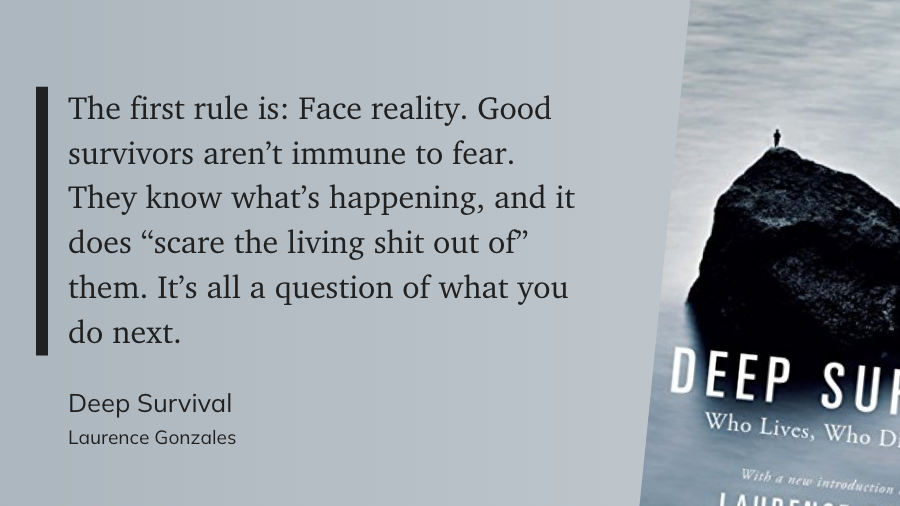
To be a survivor, you can’t pretend things are ok when they’re not. People who are lost in the woods often trudge on, thinking they’re close to getting back on the trail instead of backtracking to safety. In the Resilience Rules framework, we call this “Confronting reality”. (Tweet this)
2. Survivors think for themselves
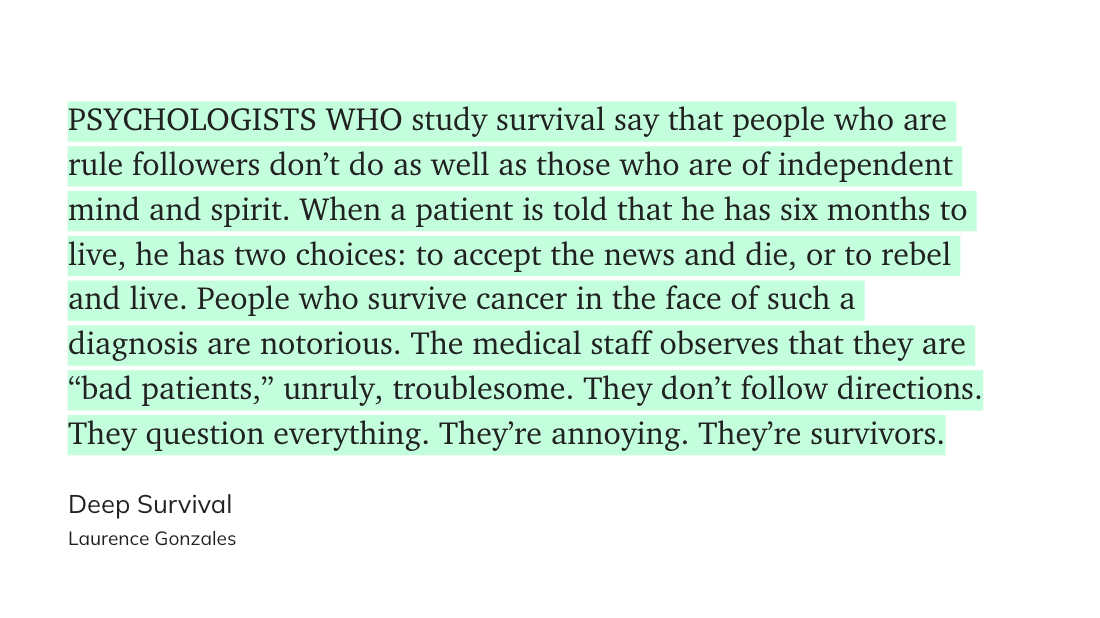
Often the things that keeps survivors alive is being stubborn and willing to buck authority. Gonzales references workers trapped in the World Trade Center who got all the way to the ground floor and were turned by back the office staff (and complied) instead of just saying - fuck it, I’m getting out of this building. That unwillingness to disobey authority killed them. (Tweet this)
3. Survivors are cautious
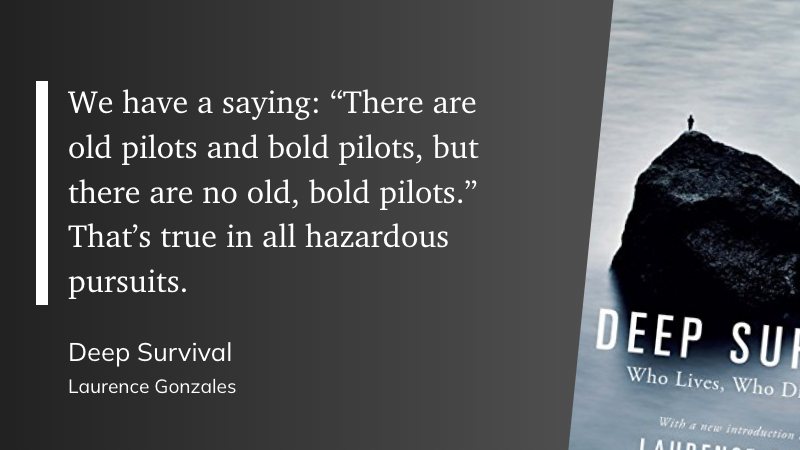
If you take big risks on a regular basis, you will eventually strike out hard. And unlike in business, where bankruptcy laws (at least in the US) are fairly lenient, striking out in the wild means permanent damage or death. Gonzales makes the point that mistakes that would be merely an inconvenience in the human world (lost the charger for your phone - buy a new one) become catastrophic in wild (lost supplies cannot be replaced). (Tweet this)
4. Survivors think about helping others
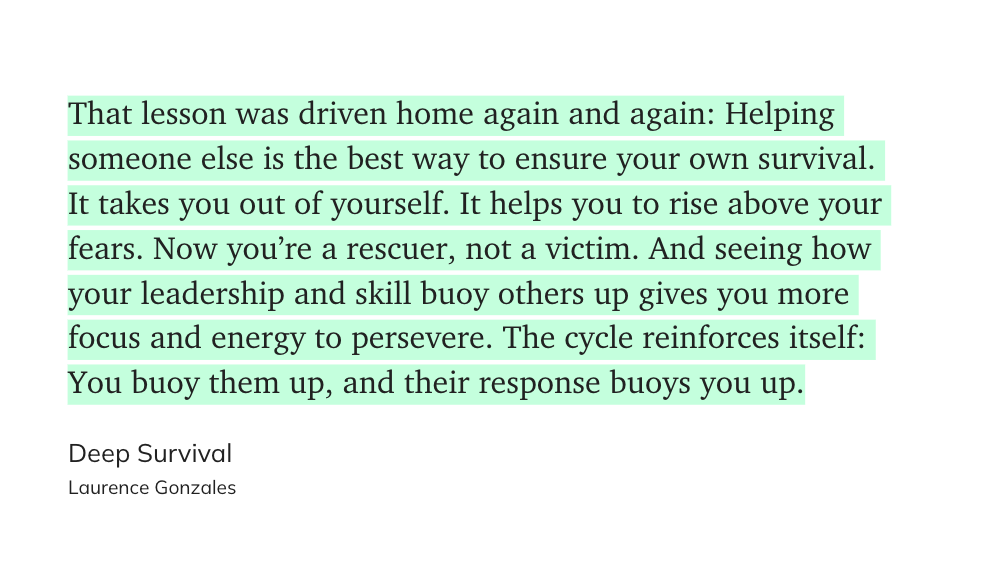
One of the less intuitive lessons from Deep Survival was the importance of helping others. They have what Adam Grant would call the “Giver” mentality. By focusing on either helping those around you or those you wish to help back at home (your family, coworkers) survivors were less likely to give up and maintain a good spirit under trying conditions. Because a lot of the battle is just mental and not losing all hope. In the Resilience Rules framework we call this strategy “Keep the Faith” (Tweet this)
